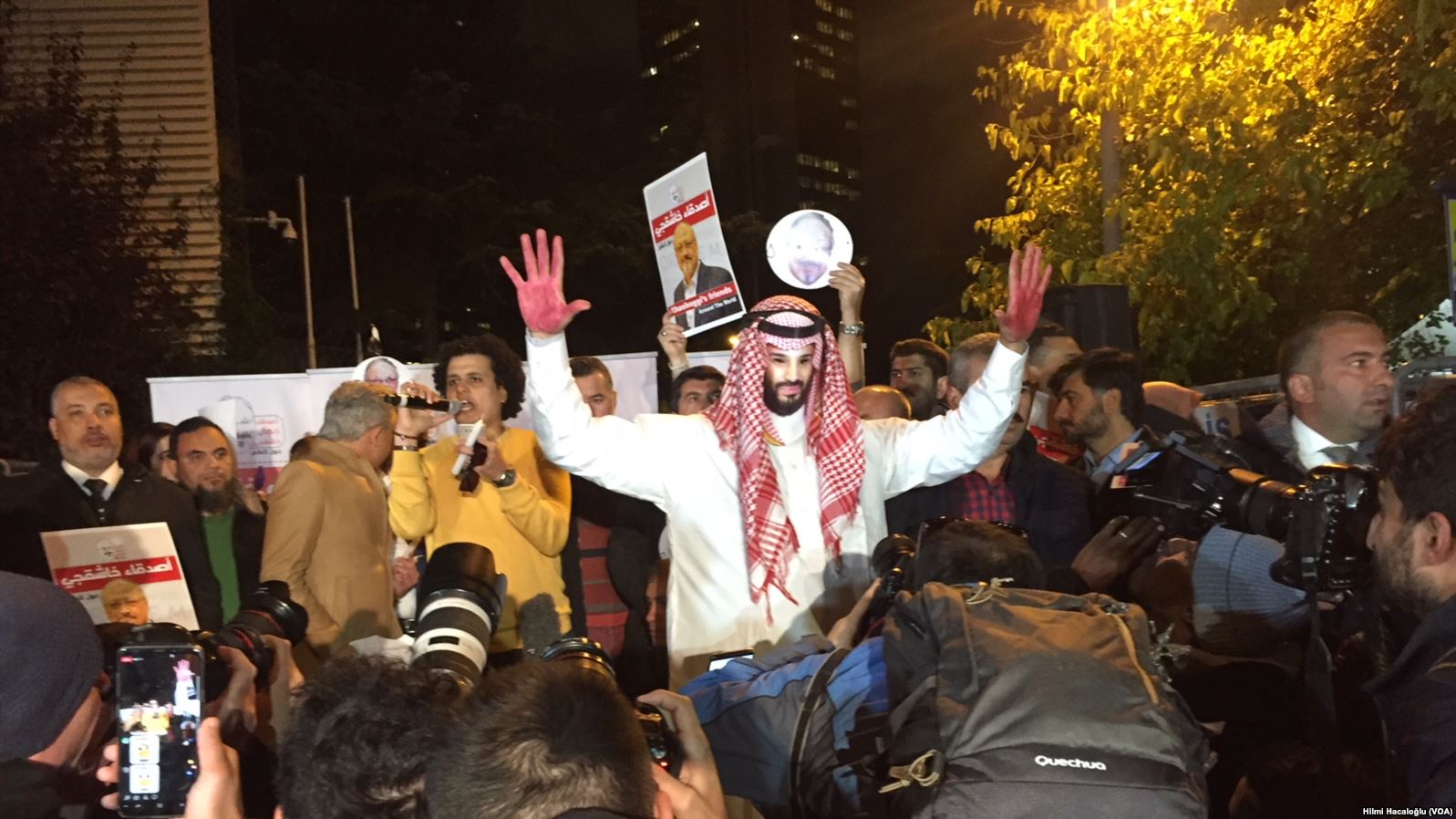Surrounding its one-year anniversary, the Jamal Khashoggi murder scandal has been resurrected, haunting Saudi Arabia’s de facto ruler, Crown Prince Mohammad bin Salman (MBS) again. Though he has continually denied any direct connection to the murder, he is having a hard time putting Khashoggi’s ghost away.
But the United States should not be too quick to pull the trigger and disengage with MBS and Saudi Arabia.
Currently, the Saudis are the U.S.’s second biggest crude oil supplier, and any kind of measures to stabilize the Middle East must have support from the House of Saud. And as the de facto ruler of Saudi Arabia, the U.S. has to play nice with MBS — not necessarily condone or ignore his actions, but avoid making him an enemy.
On Oct. 2, 2018, Jamal Khashoggi, a Saudi Arabian journalist who lived in self-imposed exile in the United States, went back in Istanbul to finalize his divorce so he could marry Turkish citizen Hatice Cengiz. At 1 p.m., Khashoggi entered the Saudi Arabian consulate in Istanbul. But he never came out. Police later concluded that inside the consulate he was drugged, killed, and cut into pieces by Saudi hitmen. His remains have yet to be found.
Khashoggi was previously known for his criticism of the Saudi royal family, and in particular Crown Prince Mohammad bin Salman. Before he died, Khashoggi said his continued criticism led to suspicion and accused the Saudi government of banning him from Twitter. He claimed his move to the United States in 2017 was for safety.
Immediately following Khashoggi’s death, the Saudi government — MBS in particular — denied any connection to the murder. The Turkish authorities kept investigating and insinuating that there was official Saudi involvement until the Saudi government finally said they believed it was a “rogue operation.”
A global uproar ensued, as many thought this was a human-rights violation. The United Nations investigated the murder last summer and concluded that Khashoggi’s murder was a “deliberate, premeditated execution” and the state of Saudi Arabia had to bear responsibilty. The U.N. also said there was “sufficient” and “credible” evidence to link MBS to the murder.
The fiasco has not only slowed down the U.S.’s arms deal with Saudi Arabia in the past year, but it has drastically slowed foreign investment in the kingdom, especially now that the United States fell in line with the rest of the globe in demanding a full investigation of Khashoggi’s death.
Just in the past two weeks, MBS agreed to an interview with PBS for a documentary. In this interview, MBS made the bold move of taking responsibilty for the murder.
“I get all the responsibility because it happened under my watch,” and “since it was committed by individuals working for the Saudi government,” MBS said. “This was a mistake. And I must take all actions to avoid such a thing in the future.”
But though he is taking responsibility as a ruler, he still completely denies that he ordered Khashoggi’s death.
There is still a massive global outcry against Khashoggi’s murder. Turkey’s President Erdogan in particular refuses to stand down and for the past year has been calling Khashoggi’s death a political murder and “a serious threat to international order.” He also said it “was arguably the most influential and controversial incident of the 21st century.”
Khashoggi’s murder nearly ruined MBS’s international image. Instead of being the reformer that he tried to set himself up to be in 2017 and 2018, he is now being perceived by world leaders, especially the U.S. Congress, as another shady Arab dictator that the United States and the rest of the international community has ethical qualms about dealing with.
Though MBS tried to smooth things over by publicly taking some of the responsibility for Khashoggi’s death, he has lost many U.S. supporters to a now bipartisan crusade of justice for Khashoggi. For example, the House of Representatives recently added language in the National Defense Authorization Act requiring the administration to identify and sanction those found responsible for the murder.
Though there has been a serious reaction against MBS, Trump, now putting himself at odds with both political parties, has stood up for MBS saying that it is unclear that the prince had any connection to the murder. Why? Because Trump knows the importance of the Saudi-U.S. relationship. He is simply being pragmatic and serving U.S. interests.
Trump probably shouldn’t be so intimate with MBS, but at least he understands that it’s vital not to sabotage the U.S. ties with Saudi Arabia. If Congress wants to keep MBS at arms-length, fine. That’s maybe even a good idea. But don’t cut him off altogether. Saudi Arabia, and MBS as its ruler, is not only a key U.S. business partner, but the key to any sort of Middle Eastern stability.
From a practical standpoint, if the United States antagonized and cut off every world leader that has questionable actions and ethics, it would be a lonely hypocrite. In a cynical but true sense, sometimes not letting corruption shut down every international relation, is what brings success in the broader scheme.
Yes, MBS is probably shady, but sometimes it is necessary to work with evil men for a greater good. Read Jeane Kirkpatrick’s 1979 “Dictatorships and Double Standards” to understand that that there is often a necessity to work with less-than-stellar dictators, while still recognizing what they are, for the greater good and U.S. interests.
No, the United States should not just look the other way and ignore Khashoggi’s murder. Go ahead, investigate MBS. Be very wary of him. Keep in mind his importance and usefulness, and do not cut off relations with him.
Abby Liebing is a senior studying history and is the associate editor of The Collegian.


